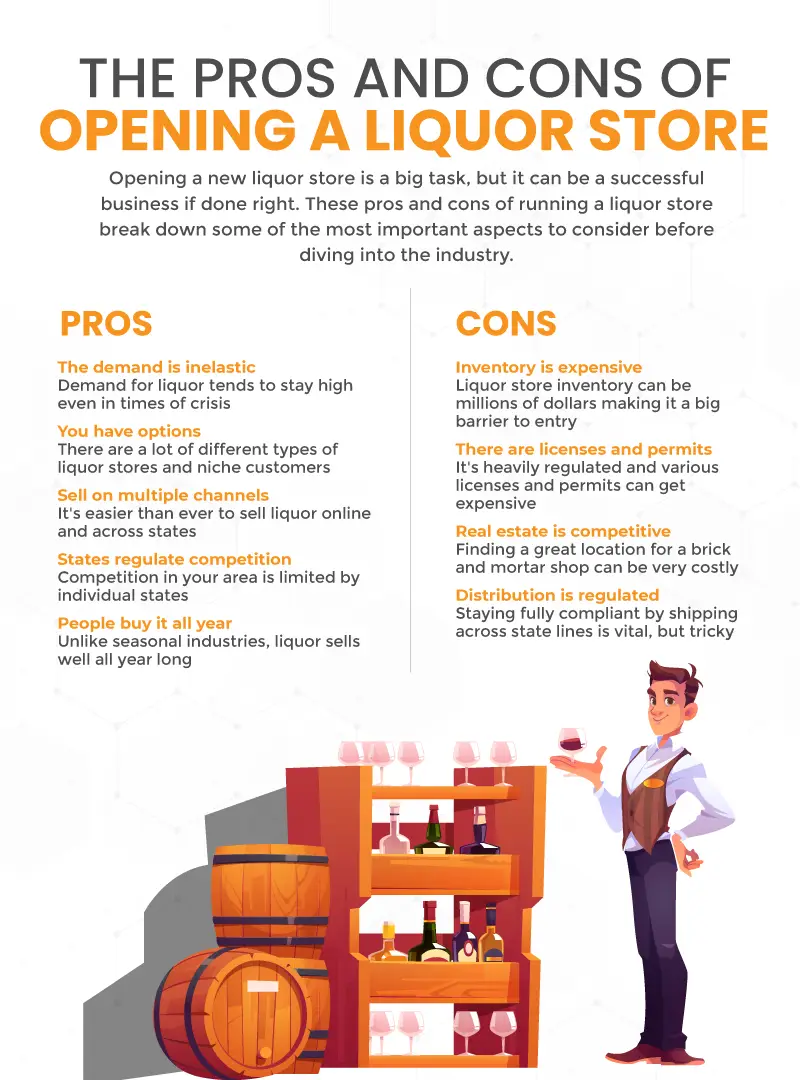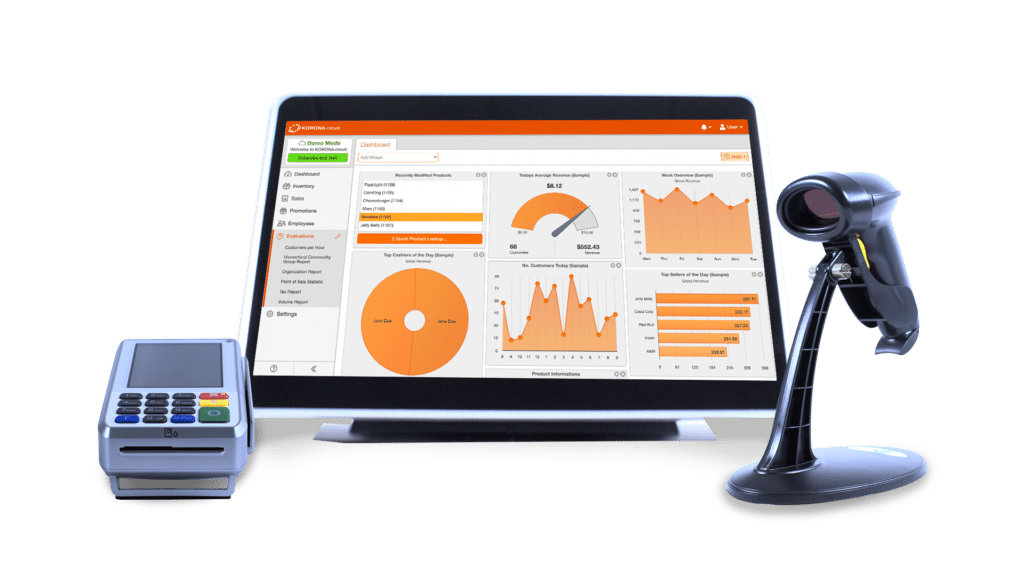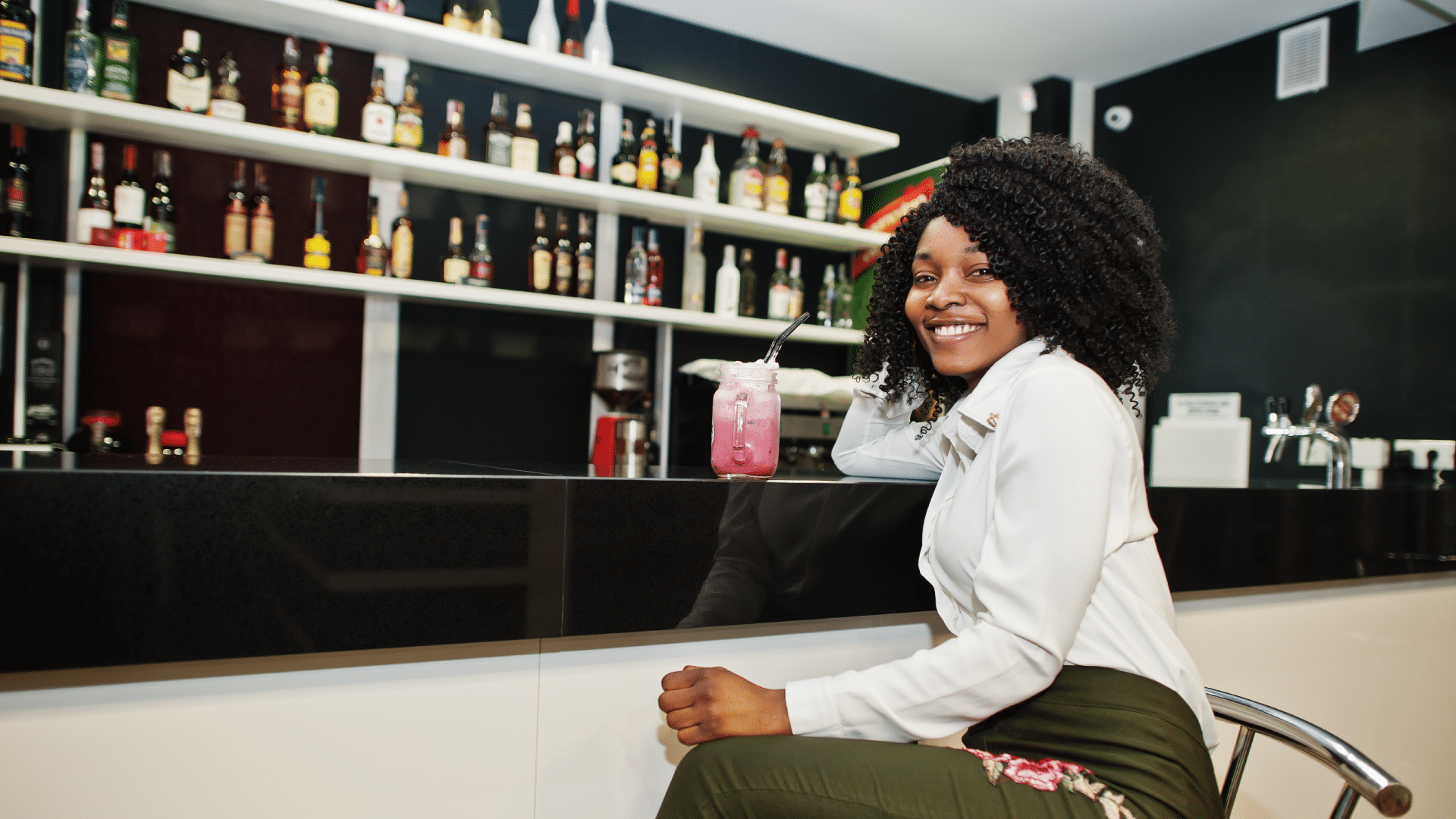Many entrepreneurs are drawn to the liquor store industry’s year-round demand and steady margins, yet wonder – Is owning a liquor store profitable? Short answer: Yes, it can be—but only with the right planning, location, and tools.
In this article, we’ll walk you through the true cost of opening a liquor store, potential earnings, profit margins, and how to run a store that thrives. We’ll also cover the pros and cons, plus proven tips for long-term success.
Key Takeaways:
- Owning a liquor store can be profitable, especially in high-traffic areas with low competition, yielding margins between 20-30%.
- Startup costs range from $100,000 to $250,000, depending on size, inventory, and licensing requirements. Liquor store owners earn between $30,000 and $100,000 annually.
- Success hinges on good liquor inventory management software, understanding your customers, and clever marketing strategies.
Is Owning a Liquor Store Profitable?
Yes, owning a liquor store can be profitable, but running a successful liquor store depends on several factors, including location, local laws, competition, and how well you manage your inventory and marketing. Profit margins usually range from 20% to 30%, with some niche products offering even higher returns.
Most stores generate consistent revenue due to steady consumer demand for alcohol. However, like any retail business, the key is optimizing costs and maximizing sales, which modern POS systems like KORONA POS specialize in.
What Does It Cost to Open a Liquor Store?
Expect to invest anywhere from $100,000 to $250,000 to open a liquor store. This includes costs like:
- Licensing and permits (can range from a few hundred to tens of thousands depending on your state)
- Initial inventory
- Lease or real estate
- Store fixtures and equipment
- Point-of-sale system and technology
Liquor Store Salary: What to Expect
The average liquor store owner earns between $30,000 and $100,000 annually, with some earning much more if the store is in a busy urban area or offers niche products.
Smaller stores or rural locations may net less, but smart business practices — like embracing holiday promotions, hosting tastings, or using POS data to track top-sellers — can increase profits over time. Owners who reinvest profits and expand wisely will see earnings grow significantly year over year.
What Are the Pros of Running a Liquor Store?
While we touched on a few pros in the introduction, let’s expand on those and discuss a few other pros to owning a liquor business.
The demand doesn’t go away
Alcohol remains in demand, even during economic downturns. This makes liquor stores more resilient than many other types of retail.
Liquor stores can be flexible
Whether you operate a boutique wine shop or a full-service liquor mart, there’s flexibility in how you design and brand your business. Entrepreneurs can follow what they’re genuinely passionate about and cater to a specific type of liquor shopper.
It’s easy to sell on multiple channels
With tools like KORONA POS’s inventory and eCommerce integrations, expanding online and offering delivery or shipping (where legal) is easier than ever.
There is state regulation for competition
States often limit the number of liquor stores in a given area, especially in rural communities. Though that might make finding a location a challenge, it will reduce your competition once you do.
Demand for liquor is all year long
Unlike many retail businesses, liquor stores enjoy year-round demand. While consumer spending certainly ups during the holidays, most people find excuses to drink no matter the occasion.
What Are the Cons of Running a Liquor Store?
Like any business venture, running a liquor store doesn’t come without its risks. It’s important to understand the cons of opening a liquor store before getting started.
Liquor store inventory is expensive
Stocking an entire liquor store is costly. Business owners should be prepared to seek funding to purchase the proper amount of inventory before opening.
Once open, the collective inventory on your shelves will remain high. The right inventory management strategies and liquor store POS software can help.
You need costly licenses
Liquor licenses can be pricey and complicated. Consult with a lawyer and your local city council about all requisite licenses and permits prior to making final plans for opening.
Liquor store real estate is expensive
Prime retail spaces near foot traffic or commuter routes can come at a premium, especially in cities. Plus, your liquor license is bound to your license, so liquor store owners must sign long-term leases or buy the property outright.
Liquor distribution is regulated
Because of interstate regulation of liquor, figuring out your ordering and supplier relationships can be difficult. Additionally, all states have unique requirements and maximum quantities that liquor stores can deliver.

Expected Profit Margins of Liquor Store Inventory
Liquor store profit margins range based on several factors, including your overhead costs, inventory, suppliers, and clientele. Here’s what you can expect for gross profit margins on different products.
- Spirits: 25%–30%
- Wine: 30%–40%
- Beer: 15%–25%
- Specialty/craft items: 40%–50%
To maximize profits, use tools like KORONA POS’s inventory management system to track top sellers and reduce waste or theft.
How Much Do Liquor Stores Make?
A well-placed suburban store might earn $250,000–$500,000 annually, while high-volume urban stores can earn $1 million+. After covering inventory, rent, labor, and licensing, typical net profits are between 10% and 20% of total revenue.
pro tip:
Annual revenue for liquor stores ranges widely and depends on a store’s location and profitability strategies.
How I Can Run a Successful Liquor Store?
While the most important aspect of running a successful liquor store business is how you get started, here are some ways to maximize your profits once opened.
Monitor consumer trends
Stay on top of what’s popular—like hard seltzers or local craft beer—and adjust your inventory accordingly.
Host events and educational opportunities
Tastings, mixology demos, or wine classes can bring in new customers and drive loyalty.
Encourage club memberships
Wine-of-the-month subscriptions and loyalty programs are proven ways to grow your sales and increase average customer spend.
Offer promotions and tastings
Run limited-time offers or free tasting days to increase foot traffic.
Boost your impulse purchase selection
Spend some time improving your liquor store impulse items, like party supplies, non-alcoholic beverages, shooters, bar tools, home brewing gear, and apparel merchandise. These items always have higher margins and boost your bottom line.
Find unique beer, wine, and liquor inventory
Stand out by offering local, organic, or hard-to-find items that customers can’t get at big-box stores. If your current suppliers aren’t offering relevant and exciting items, look at forming new relationships.
Get started with KORONA POS today!
Explore all the features that KORONA POS has to offer with an unlimited trial. There’s no commitment or credit card required.
Is Owning a Liquor Store a Good Investment?
Yes—if you’re strategic and well-prepared, a liquor store can offer steady income, strong margins, and long-term value. In fact, liquor stores are some of the most profitable businesses out there!
It’s not a get-rich-quick scheme, but for those willing to manage inventory, understand local laws, and market creatively, it’s a rewarding investment.

Start Your Own Profitable Liquor Store With KORONA POS
Ready to make the leap? KORONA POS helps liquor store owners track inventory, analyze sales, manage promotions, and stay compliant. Whether you’re launching your first shop or scaling to multiple locations, our platform is built to grow with you.











